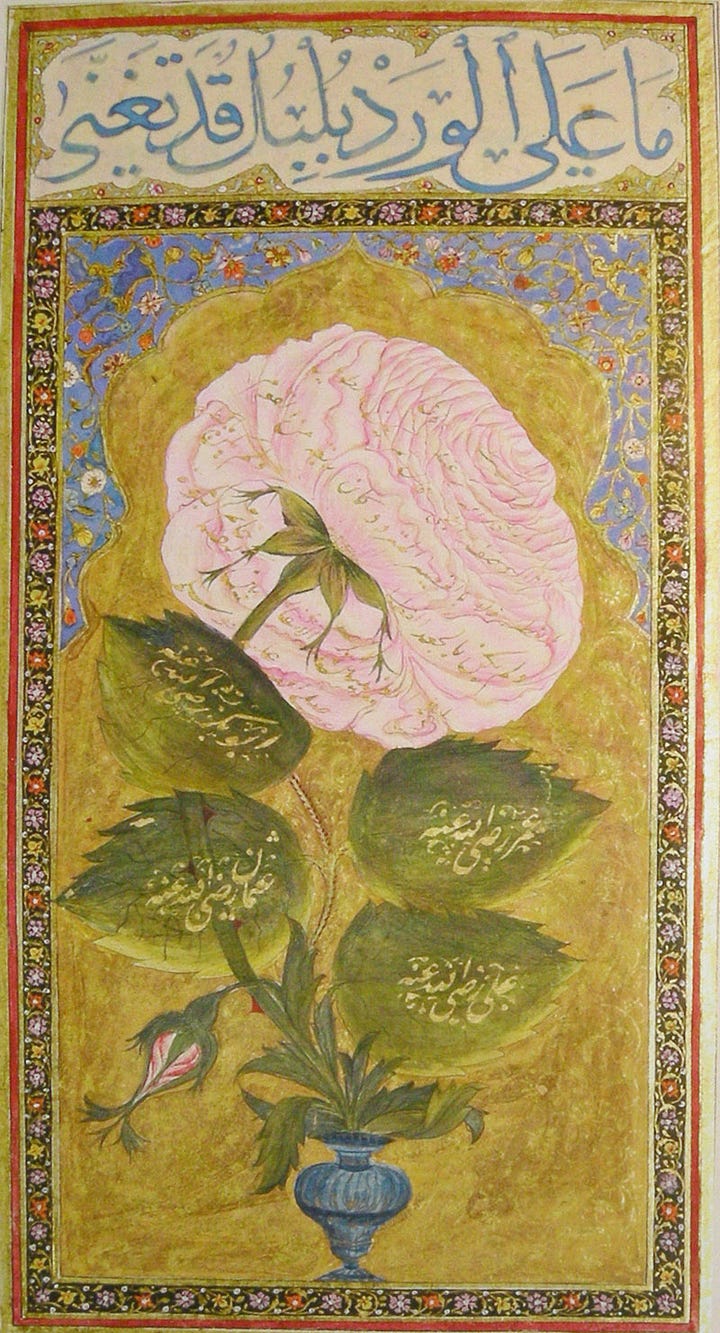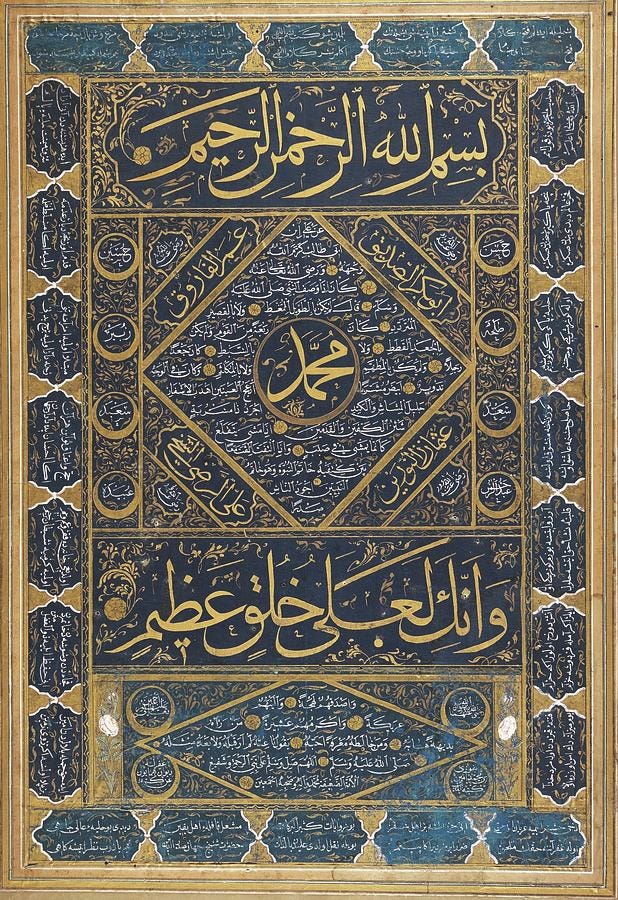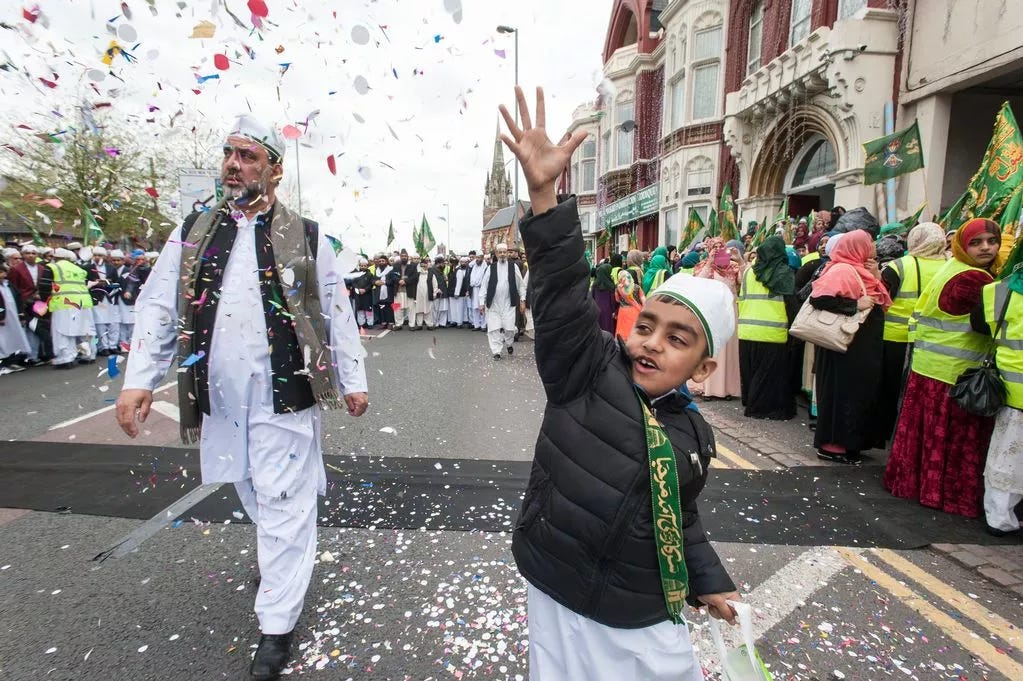What Christians Get Wrong about Muhammad
This month, Muslims are marking the Prophet’s 1500th birthday, remembering him as a paragon of good character and seeking to follow his example
On September 3–4, and during the entire Islamic month of Rabi’ ul-Awwal, Muslims in many places are commemorating the birthday of the Prophet. This year is a big one: 1500 years, according to the lunar Hijri calendar. “Mawlid” celebrations take many diverse forms—from vibrant gatherings with lights and decorations to prayerful invocations and almsgiving to the poor. Muslims have had varied opinions about what these observances should look like, but what unites them in this diversity is their love and admiration for the Prophet, and their desire to model their own lives after his example, or Sunnah.


As I see it, one of the biggest misunderstandings that Christians have of Muslims relates to this—the Prophet’s character. For centuries, Christians have often envisioned Muhammad as a violent, lustful, power-hungry figure who was, at best, duped into spreading false knowledge of God, or, at worst, intentionally drawing people to the devil. Knowing that Muslims highly admire and love Muhammad, Christians assume that Muslims see little to no problem with these qualities and perhaps even seek to emulate them. This negative image of Muhammad (and consequently, of Muslims) has been passed down to us from old Christian polemical writings against Islam, and is particularly held by Christians in the West who have had less exposure to Islam than Eastern Christians.
But this negative picture of the Prophet could not be more different from the image of him that emerges from the many centuries of Islamic tradition and is held by the vast majority of the world’s Muslims. For Muslims, Muhammad is the paragon of good character and he possesses many if not all of the virtues that Christians would also praise: generosity, humility, mercy, affection, forbearance, endurance amid hardship, courage, and frugality.
Since the earliest days of Islam, stories that exemplify Muhammad’s beautiful attributes (shama’il) and good character (khuluq) have been passed down through the generations. The Islamic tradition is replete with beautiful accounts of Muhammad playing with children, doing chores around the house, laughing with his companions, bearing patiently with those who mistreated him, and caring for others even when they didn’t deserve it.
Muslims the world over encounter these stories often in sermons, books, and tales passed on from elders. As a student/scholar of Islam, I’ve been struck by the way this portrait of the Prophet’s virtues is shared by so many Muslims and has endured across time and space.
As a Catholic Christian, I find this Muhammad—who looks so different from the stereotypical one that many Christians know—very inspiring, and the stories about him edifying. And his radiant personality shines through in so many of the Muslims I have had the privilege to know. They embody the Prophetic character in their daily lives in simple yet profound ways.
This is not to say that there aren’t episodes in some Islamic texts about the Prophet that, at least at face value, Christians (and Muslims, too) might find hard to swallow or unacceptable. But it is eminently important for Christians to understand that Muslims interpret these potentially problematic episodes in light of their pre-existing understanding of the Prophet as an eminently kind and just figure. We Christians should also recognize that Muslims might not even be familiar with the accounts that give us pause, or they might even reject them as false. And it’s important to know that the qualms we Christians have had about elements of the Prophet’s biography have changed over time. For example, as Kecia Ali has pointed out, a couple centuries back, no Christian writer took issue with Muhammad’s betrothal/marriage to a young girl because this was a norm in European Christian contexts, too.
As Muslims mark the Mawlid this year, I hope more Christians can become acquainted with the version of the Prophet—the compassionate, generous servant-leader—who means so much to Muslims everywhere.
Next week, I’ll be speaking at a Mawlid event at a local mosque in the D.C. area. I’ll post more details here and via Substack notes when they are available.




I'm very happy to learn this, thank you Jordan! All this anti rhetoric has always felt tribalist and one sided, because Muslims and Muslim culture can be stunningly beautiful, like frankly everyone, but we color them wrong when extremists and ideologies disrupt humanity, and Christians have our own fair share of all that too.
One of the eye openings book for me in recent years is John Tolan’s Faces of Muhammad. It’s full of gems: https://press.princeton.edu/books/hardcover/9780691167060/faces-of-muhammad?srsltid=AfmBOoqQXFkFMRb95qp3rVS49vMwrPUeag2zbK_qx9QlrfQAO26pa1tv